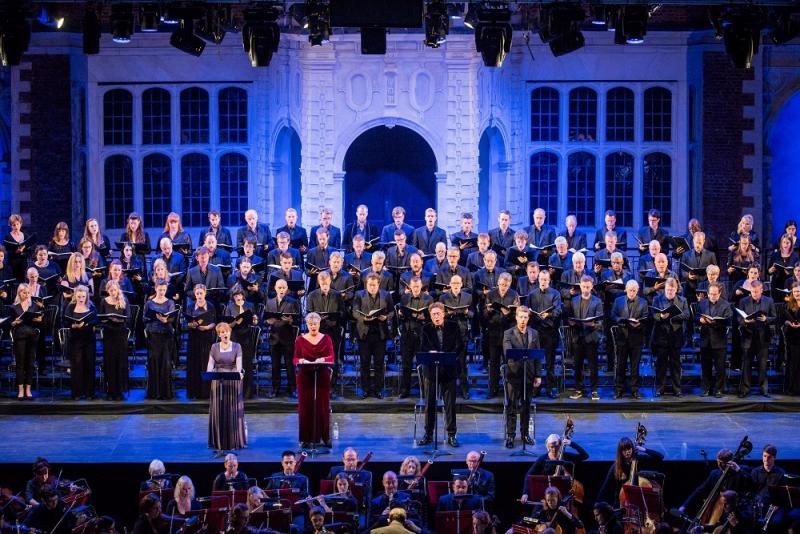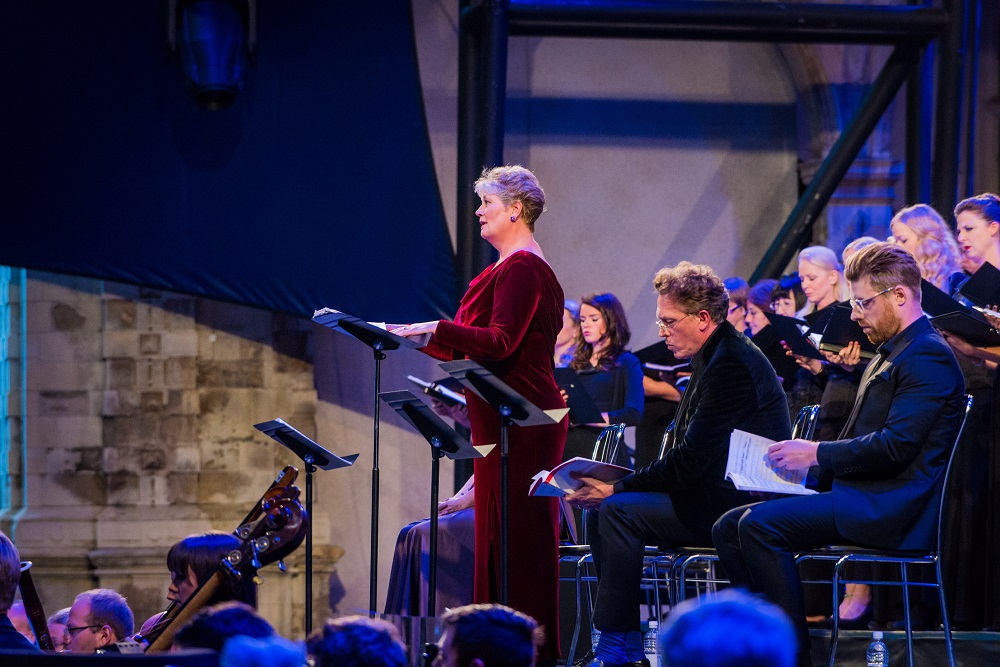Michael Volpe on a Requiem for Grenfell: 'one of the most remarkable evenings in our history' | reviews, news & interviews
Michael Volpe on a Requiem for Grenfell: 'one of the most remarkable evenings in our history'
Michael Volpe on a Requiem for Grenfell: 'one of the most remarkable evenings in our history'
Opera Holland Park's General Director on the company's response to losing a team member in the Grenfell Tower fire

On the morning of the Grenfell Tower disaster, as the news of the fire gathered pace and gravity, our phones were abuzz with concern for our front of house colleague, Debbie Lamprell, who we knew lived in the tower. We all called her number time and again, sought to reassure one another with optimistic scenarios whereby her telephone may have been left at home as she escaped. My telephone rang again.
Using Google Maps, I talked him around the streets to each relief centre because the signal on his phone was non-existent. Hope rose again when another of our colleagues reported that her friend had escaped safely from a flat on the same floor as Debbie. We called the emergency numbers, giving her name, but in time, hope faded.
As individuals and as a company family, it pains us to have lost a workmate and friend as we have. This doesn’t make us unique; there are many people and organisations touched by this dreadful catastrophe. With Debbie’s mother in attendance, we commemorated her with a private service, with singers from the cast performing at the time, as well as others not in the show joining, to give a rendition of Will Todd’s arrangement of "Amazing Grace", with Will himself on piano. Her mother was surrounded by her daughter’s friends, and all – from our chairman to stage crew, to singers and orchestra members – embraced and consoled her. Later, at the end of our final performance of La rondine, the cast gave an encore of Puccini's joyous quartet ("I drink to your beautiful smile") in her memory. It was as profoundly moving a moment as any of us had ever experienced and hundreds of our patrons were in tears.
It wasn’t long before our connection to the disaster became not about our friend, but perceived as a factor in its genesis. When you work for an arts organisation, you don’t really ever expect to find yourself at the heart of one of the worst public tragedies in a generation, let alone being linked to the cause of it. But this is what happened when The Times and Daily Mail ran stories tying the separation of Opera Holland Park from the Royal Borough of Kensington and Chelsea in 2015 with the disaster. In the rehearsal rooms, James had to explain the situation to our casts and teams, confused and alarmed at the attacks, and met with unstinting support.
We let the storm ride and decided to put together an event that would help raise money for Rugby Portobello Trust, a local charity we have links to and who were at the heart of the maelstrom on that first morning. Theirs was also the centre James visited first on his fruitless search. And we also wanted to do something that would give us a chance to remember Debbie and all of the victims. The Verdi Requiem seemed the obvious, if enormously challenging, choice. It is an operatic piece – and we’re an opera company.
As soon as James had spoken to various singers, sounding out potential soloists and chorus, the event became inevitable, unmistakably “OHP family” and something we knew would be one of the most remarkable evenings in our history. Matthew Swann of the City of London Sinfonia immediately offered to ask the orchestra’s players if they would like to volunteer and the response was unequivocal. Many of them who had other unavoidable commitments wrote to express their desire to play and their regret that they couldn’t and several made donations instead. Peter Robinson and Sian Edwards, the two conductors from our final shows, would share the podium duties: Dane Lam and Matthew Waldren from the first two shows were desperate to perform (we had hoped that all four would share the task) but had other overseas appointment sessions. Well over 120 musicians volunteered for the chorus, including composer Mark-Anthony Turnage, conductor Ed Gardner and many distinguished singers.
As soloist Yvonne Howard (pictured above at the performance) said on her Facebook page, “I did have a wee chuckle at one point when l turned around and saw that the choir was filled with dozens of exceptionally talented friends and colleagues; many of them far more celebrated than we soloists. Wonderful - & what a sound!” Her fellow soloists were Anne Sophie Duprels, Barnaby Rea and Neal Cooper. Technical and staging help, the front of house expertise of staff who used to work with Debbie, catering, music parts and many other necessities were volunteered and offered for free. The event went on sale, was sold out within 36 hours, and what had been an effort to fundraise had become a profound responsibility.
The day itself was as brilliantly organised as it could hope to be with so many people involved and the atmosphere hearty and warm, but dignified too. None of us forgot why we we doing it and my talk to the front of house team who had returned to remember Debbie was almost my emotional undoing, threatening to open the tap after a surreal, unprecedented month of exposure to grief. I can say little about the performance itself; we all know how Verdi’s music overwhelms at the best of times, but its context here was almost unbearable.
We make music. All musicians, singers, artists will tell you that they express themselves through their art form. In the programme we used a quotation from Aldous Huxley which seemed to encapsulate this sentiment best of all: "After silence, that which comes nearest to expressing the inexpressible is music."
James and I hope that the gratitude we have to every single person who gave to the event is evident, some way, somehow, because it is inexpressible.

Add comment